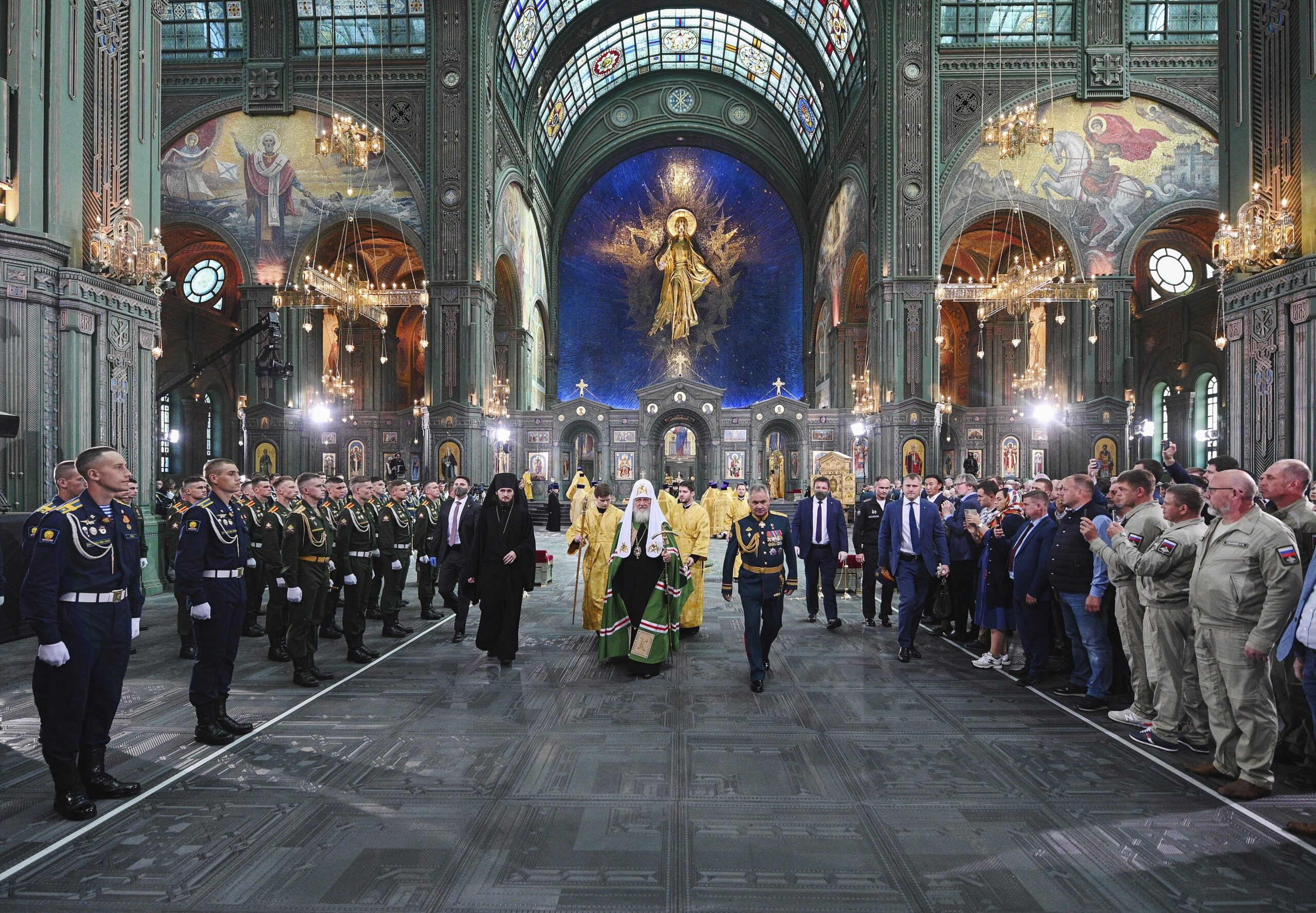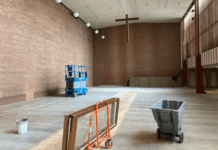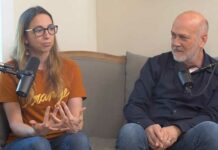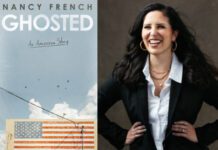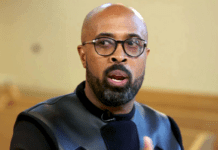“I cannot express how much it hurts to hear a statement which treats the victim and the aggressor in the same way,” Sigov said. He also accused Russian prelates present of supporting the war and, in one case, sharing videos on social media mocking Ukrainian prisoners.
“Let us hear the voice of Ukrainians when talking about the war in Ukraine,” he said, noting that independent Ukrainian churchmen, unlike Russian Orthodox leaders, lacked official representation at the assembly.
Russian Orthodox Church Patriarch Kirill, center, and Russian Defense Minister Sergei Shoigu, right, at the consecration of the Cathedral of Russian Armed Forces outside Moscow, June 14, 2020. (Oleg Varov, Russian Orthodox Church Press Service via AP)
The Russian Orthodox were also critical of the statement. One Russian delegate, Archimandrite Philaret Bulekov, dismissed it as part of an “information war” and derisively likened it to anti-war statements from McDonald’s and Starbucks, saying it would occupy “the same level of importance.”
He called the German president’s speech “pathetic” and alleged that Steinmeier bore “personal responsibility” for the Ukraine invasion.
After Bulekov finished, a youth observer representing the Orthodox Church of Ukraine, Oleksandra Kovalenko, called on members of the Russian delegation to raise their blue voting cards if they opposed the Russian invasion of Ukraine. According to one attendee, no blue cards were raised.
“It is very sad that you compared the blood of Ukrainian people to Starbucks and McDonald’s,” said Kovalenko to applause from many in the chamber.
Pressed by journalists at a closing press conference, members of the WCC central committee acknowledged Ukrainian and Russian Orthodox delegations did not formally meet during the assembly. Metropolitan Nifon of Târgoviște, a Romanian Orthodox priest who is vice moderator of the WCC committee, said members of the two sides may have talked informally and “exchanged some views.” Formal dialogue, he said, remains a goal.
“For people to come to the table, it takes a lot of footwork in the background,” said Agnes Abuom, moderator of the WCC Central Committee representing the Anglican Church of Kenya. “That needs to continue to happen in order that there will be trust, the willingness to come to the table and dialogue.”
Mary Ann Swenson, a United Methodist Bishop from the U.S. and a vice moderator of the central committee, expressed hope for such talks. “We really did do some breaking down of walls in a lot of ways,” she said.
As important at this stage, she said, was making sure others heard the stories of those ravaged by the ongoing war. “I would also say that a significant thing was that other people in all of the other parts of the world got a deeper and better understanding of what people are really living with in that region, to hear some of the struggles from all of the people in that region. That will make a difference in the future.”
This article originally appeared here.


